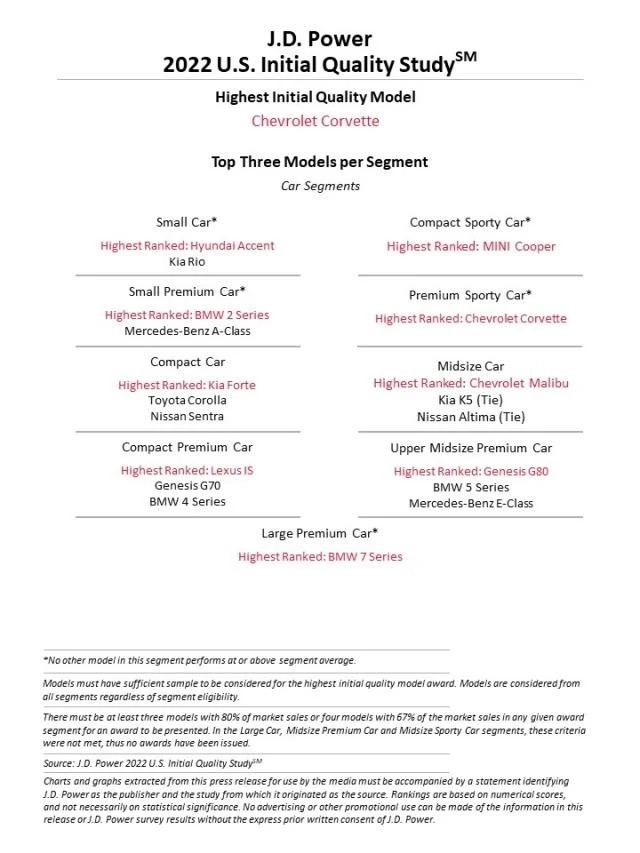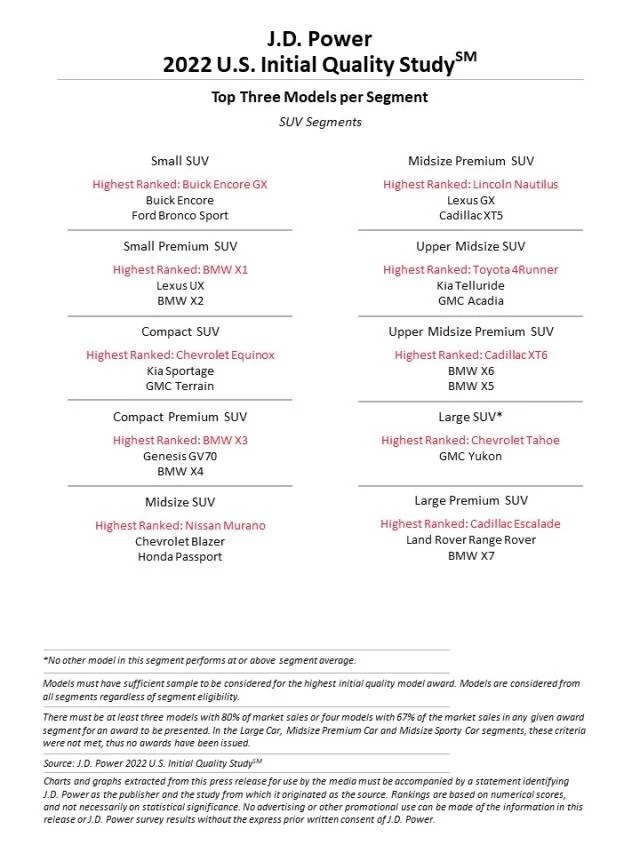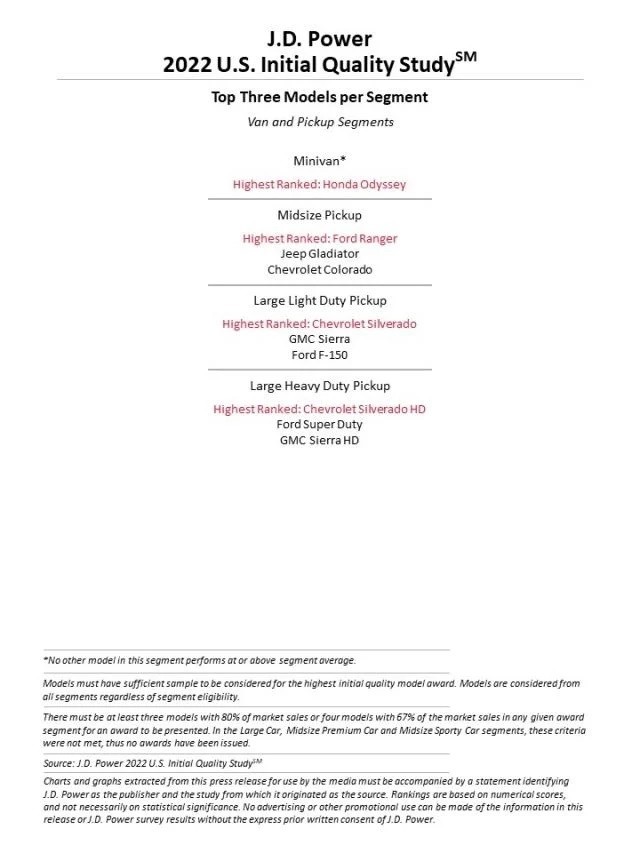J.D. Power has released their 2022 U.S. Initial Quality Study, which found “disruptions caused by the pandemic – supply chain issues, record-high vehicle prices and personnel dislocations – contributed to vehicle problems reaching a record high.”
In particular, there was an average of 180 problems per 100 vehicles (PP100), which was 18 more than last year for an 11% increase.
Jumping into the results, General Motors was the big winner as Buick had the highest initial quality rating with 139 problems per 100 vehicles. The automaker also won the most model-level awards as the Buick Encore GX, Cadillac Escalade, Cadillac XT6, Chevrolet Corvette, Chevrolet Equinox, Chevrolet Malibu, Chevrolet Silverado, Chevrolet Silverado HD, and Chevrolet Tahoe all won praise. The accolades don’t end there as the Corvette was the highest-ranking model with an overall score of 101 PP100.
Rounding out the top five brands were Dodge (143), Chevrolet (147), Genesis (156), and Kia (156). At the opposite end of the spectrum, the worst brands were Chrysler (265), Volvo (256), Maserati (255), Audi (239), and Volkswagen (230).
However, it’s important to note Polestar fared the worst by a wide margin as they had 328 problems per 100 vehicles. That being said, J.D. Power noted the brand was “not rank eligible.”
Speaking of Polestar, J.D Power said “Owners of BEVs and PHEVs cite more problems with their vehicles than do owners of vehicles with internal combustion engines.” While ICE vehicles had an average of 175 problems per 100 vehicles, that number jumped to 239 for plug-in hybrids and 240 for EVs. That being said, it’s important to note these results don’t include Tesla “because the predominance of Tesla vehicles could obscure the performance of the legacy automakers that have recently introduced BEVs.”
The study also found that mass market brands have better initial quality as they average 175 PP100 vs. 196 PP100 for premium vehicles. The difference is largely chalked up to increased technology and complexity in modern luxury vehicles.
Speaking of which, infotainment systems remained the most problematic area as they resulted in an average of 45 problems per 100 vehicles. The main problems were “Android Auto/Apple CarPlay connectivity (5.8 PP100), built-in voice recognition (4.0 PP100), difficulties with touchscreens/display screens (3.5 PP100), built-in Bluetooth systems (3.4 PP100), not enough power plugs/USB ports (2.9 PP100), and inconsistent audio volume (2.7 PP100).”
This year’s study was based on responses from 84,165 customers who purchased or leased a new 2022 model year vehicle. They were asked 223 questions, which were organized into categories including infotainment, features, controls and displays, exterior, driving assistance, interior, powertrain, seats, driving experience, and climate.
J.D. Power’s director of global automotive, David Amodeo, said “Given the many challenges automakers and their dealers had to face in the past year, it’s somewhat surprising that initial quality didn’t fall even more dramatically.” As he explained, “Supply chain disruption, especially the shortage of microchips, has caused automakers to seek alternative solutions to get new vehicles into purchasers’ and lessees’ hands” and this has resulted in vehicles being shipped without some features installed.








